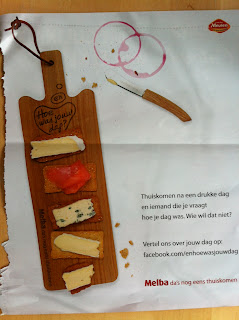I
was reading a blogpost by James Garvey, editor of The Philosophers’ Magazine and author of a
number of books about philosophy. He wrote a short piece on Trust and Brands in
which he raises an interesting point. He believes we’re living in an age of
mistrust, with scandals in banking, politics, the media and military, even
organized religion. He recognizes trust as an emotion, and therefore not
something that can be regained through objective means. When people have lost
their trust it is very hard to win back. Only through time, transparency, and a
change in behavior can trust be regained.
Fair
points I think. Maybe it would be useful to push this idea a bit harder.
One
way to look at brands is as differentiators primarily built on trust, “I buy
Heinz tomato ketchup because I believe the brand will provide me with the same
quality product every time I buy it”. Trust is based on belief and therefore
only thrives in circumstances where I cannot have all the facts to make my
decision (the difference between ‘believing’ and ‘knowing’). But with today’s
digital tools at my disposal I can get most of the facts after just a few well
aimed mouse clicks. I can examine the brand’s social agenda, I can go over
every single ingredient, I can even ask my friends why they prefer a certain
brand and advise them to use brand X over brand Y.
I
think this is what is helping the erosion of the historically high level of
trust in Apple. Of course the death of Steve Jobs is a large factor but I believe
the discovery of sweatshops, the discussion over their use of ‘dirty’ minerals
and the availability of the details on the legal fights with Samsung and Google
are what are really bringing down this once invincible brand. And it’s not just
Apple. Brands seem to be struggling to find an answer to the transparency
provided by the internet. Marketeers are coming up with brand strategies aimed
at convincing us that their brand is exactly what we want it to be, with
‘transparency’ and ‘honesty’ becoming key marketing terms. Trouble is, you
can’t fake this, or like James says in his blog, you have to mean it.
So
what’s your point of view? How should brands react to this changing world?
Should they? What’s the future of brands? Is there one? Or should brands be on
the endangered species list? Leave your comments, I’d love to hear your
thoughts.
Q.





